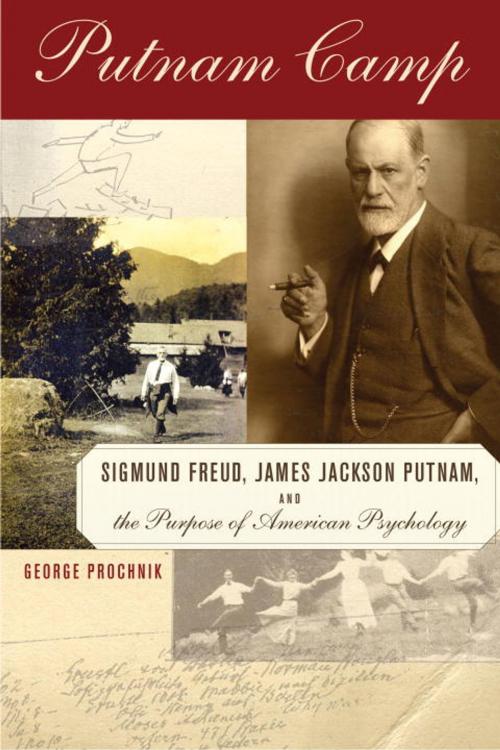Putnam Camp
Sigmund Freud, James Jackson Putnam and the Purpose of American Psychology
Nonfiction, Health & Well Being, Psychology, History| Author: | George Prochnik | ISBN: | 9781590516218 |
| Publisher: | Other Press | Publication: | December 4, 2012 |
| Imprint: | Other Press | Language: | English |
| Author: | George Prochnik |
| ISBN: | 9781590516218 |
| Publisher: | Other Press |
| Publication: | December 4, 2012 |
| Imprint: | Other Press |
| Language: | English |
Winner of the 2007 Gradiva Award
An innovative work of biography that traces the lasting impact of the friendship between Sigmund Freud and pioneering American psychologist James Jackson Putnam.
In 1909 Sigmund Freud made his only visit to America, which included a trip to "Putnam Camp”–the eminent American psychologist James Jackson Putnam's family retreat in the Adirondacks. "Of all the things that I have experienced in America, this is by far the most amazing," Freud wrote of Putnam Camp. Putnam, a Boston Unitarian, and Freud, a Viennese Jew, came from opposite worlds, cherished polarized ambitions, and promoted seemingly irreconcilable visions of human nature–and yet they struck up an unusually fruitful collaboration. Putnam's unimpeachable reputation played a crucial role in legitimizing the psychoanalytic movement. By the time of Putnam's death in 1918, psychoanalysis had been launched in America, where–in large part thanks to the influence of Putnam, and in a development Freud had not anticipated–it went on to become a practice that moved beyond the vicissitudes of desire to cultivate the growth and spiritual aspirations of the individual as a whole.
Putnam Camp reveals details of Putnam's and Freud's personal lives that have never been fully explored before, including the crucial role Putnam's muse, Susan Blow–founder of America's first kindergarten, pioneering educator and philosopher in the American Hegelian movement–played in the intense debate between these two great thinkers. As the great-grandson of Putnam, author George Prochnik had access to a wealth of personal firsthand material from the Putnam family–as well as from the James and Emerson families–all of which contribute to a new and intimate vision of the texture of daily life at a moment when America was undergoing a cultural and intellectual renaissance.
Winner of the 2007 Gradiva Award
An innovative work of biography that traces the lasting impact of the friendship between Sigmund Freud and pioneering American psychologist James Jackson Putnam.
In 1909 Sigmund Freud made his only visit to America, which included a trip to "Putnam Camp”–the eminent American psychologist James Jackson Putnam's family retreat in the Adirondacks. "Of all the things that I have experienced in America, this is by far the most amazing," Freud wrote of Putnam Camp. Putnam, a Boston Unitarian, and Freud, a Viennese Jew, came from opposite worlds, cherished polarized ambitions, and promoted seemingly irreconcilable visions of human nature–and yet they struck up an unusually fruitful collaboration. Putnam's unimpeachable reputation played a crucial role in legitimizing the psychoanalytic movement. By the time of Putnam's death in 1918, psychoanalysis had been launched in America, where–in large part thanks to the influence of Putnam, and in a development Freud had not anticipated–it went on to become a practice that moved beyond the vicissitudes of desire to cultivate the growth and spiritual aspirations of the individual as a whole.
Putnam Camp reveals details of Putnam's and Freud's personal lives that have never been fully explored before, including the crucial role Putnam's muse, Susan Blow–founder of America's first kindergarten, pioneering educator and philosopher in the American Hegelian movement–played in the intense debate between these two great thinkers. As the great-grandson of Putnam, author George Prochnik had access to a wealth of personal firsthand material from the Putnam family–as well as from the James and Emerson families–all of which contribute to a new and intimate vision of the texture of daily life at a moment when America was undergoing a cultural and intellectual renaissance.















